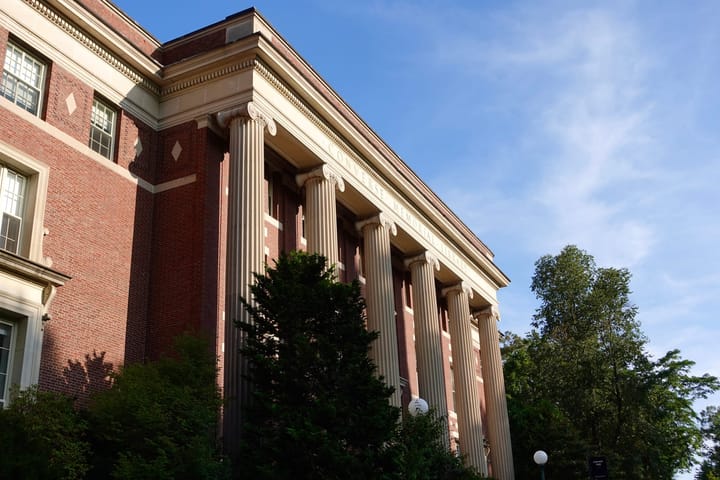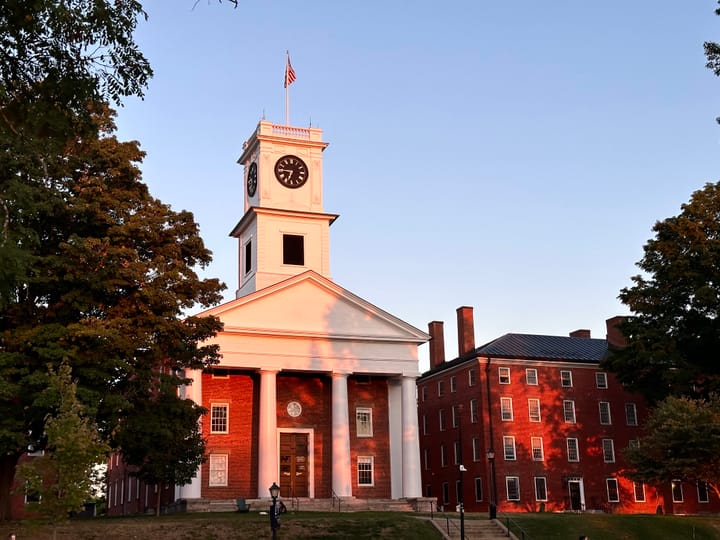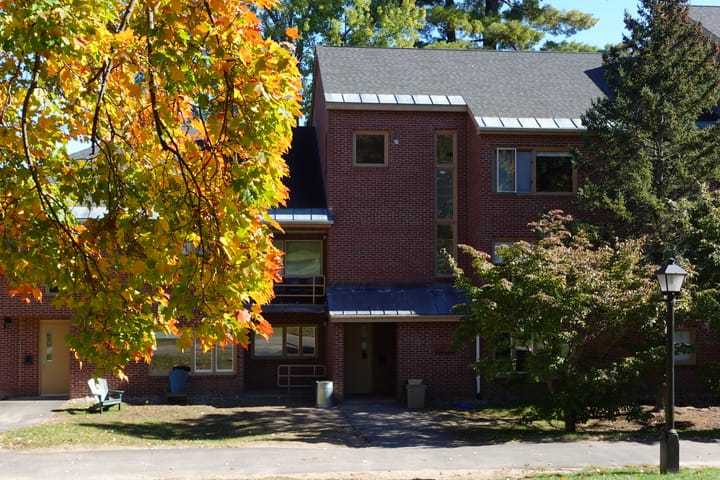Deciding to Do More
Drawing on Thomas More’s “Utopia” and his own experience of Amherst’s abundance, Contributing Writer John Milas ’28 reflects on the privilege of campus life and argues that true liberation lies not in comfort, but in using that comfort to fight for a more just world beyond the college’s gates.
Pop quiz! Guess this society off just a few quotes: “In [the dining] halls, [the people] all meet and have their [meals].” Regarding their food, “there is no reason for giving a denial to any person, since there is such plenty of everything among them.”
Furthermore, “they shift their houses by lots,” so that everyone has a home. Here, “it is ordinary to have public lectures,” and in between them, people spend their time performing “some proper exercise … which is, for the most part, reading.”
Any guesses? Well ...
No. This actually isn’t Amherst! The accounts are actually drawn from Thomas More’s famous book, “Utopia.” As the name implies, “Utopia” is about a perfect, fantastical world, where basic needs are met, and the citizens are simply asked to cultivate knowledge. But “Utopia” was merely a thought experiment — a series of vague and quixotic dreams conceived by one Renaissance scholar-statesman. Few in his era would have expected this Humanist paradise to materialize.
But, somehow, the vision has been realized today, right in idyllic little colleges like ours. As you may have surmised, we fit the basic standards. Here, no student is completely denied food, housing, or education. Welcome, reader, to life in a Morean “Utopia.”
I don’t know how you initially experienced it, but for me, starting this “Utopian” life was bedazzling and bewildering. I was not prepared for an affluent liberal arts experience, which sat in polar opposition to all I had previously known. To borrow a turn of phrase, college was a shining city on a hill, where food no longer ran on the opaque timelines of public welfare; days were no longer spent under low roofs; nights were no longer spent under the specter of eviction; and free learning was no longer a costly and mysterious ideal. I, of course, embraced this fresh alternative and all the abundance it offered. Finally, I thought, I was emancipated. I was free to map the direction of my own future, right inside this utopia.
But that’s the issue.
More’s “Utopia” does not stretch outward into the four corners of the globe; instead, it is a somewhat secluded island, and only its citizens reap the high benefits of life there. The Utopians did not seem to care about what goes beyond their shores, preferring instead the stability and learning offered by their enclave.
As such, they ignored the starvation, despotism, disease, and countless other ailments that permeated 16th-century life. Perhaps the Utopian apologist would remark that they bore no responsibility because they didn’t owe anybody anything. This is false; Utopia was no Ouroboros. Presumably, the Utopians had to rely on labor, wealth, and systems developed before and beyond Utopia.
Just the same, Amherst does not exist in a vacuum. The school's quiet affluence stands in contrast to the steady thump of poverty and oppression around the world. In the U.S. alone, welfare cuts will widen the already extraordinary disparity. Yet rarely do we consider this in our daily motions. To be fair, we’re caught up in our own student anxieties. In comparison, global dilemmas are less relevant and palatable. Indeed, it is so easy to ignore those issues. We are living in our very own Utopia.
When I returned home last summer, I was forced to confront the other side of my life. Once again, food, housing, and everything else were in question. The clamorous memories that I shelved at school raised their ugly heads. As I’m back at college now, I’m simply trying to ask myself, and maybe others, to fight for more than the utopia we’ve been given. Life here can be so privileged, and if we could donate our time or resources to something substantive, then others could share in our shining city on a hill.
I know well enough that this is easier said than done. I too have not much time and even less means. And, of course, it's always easier to preach from the pulpit of print media than to actually do something about the world. I can’t muster all the answers today, but I can at least wrestle with this one fundamental lesson of my childhood: There is always some malady out there that demands your attention.
Indeed, something is deeply wrong if the sheer comfort of Amherst life coexists with a deprecated one for so many others. College doesn’t need to be like an old, shallow, and reclusive country club. We can do more than that; we can enlist our resources to help one another, one step at a time. So let's begin now, for there is no time to waste.





Comments ()